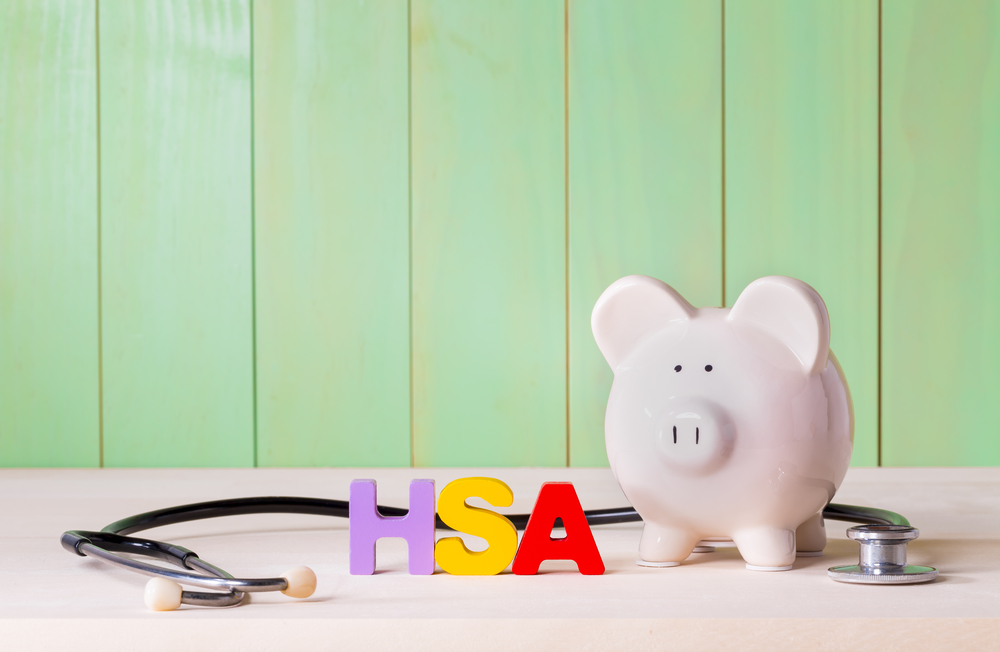Depending on the type of health insurance you have or one you are considering enrolling in, an HSA / FSA may be very beneficial. They are both powerful healthcare, financial, and even investing for retirement.
In case your knowledge of healthcare finance needs some brushing up, you can head over to Healthcare Finance 101.
Table of Contents
Let’s get into it.
1. What even is an HSA/FSA?
Flexible Saving Account (FSA) & Health Savings Account (HSA) definitions- Savings accounts that are “tax-free” and can be used on qualified medical, prescription, dental, and vision expenses and only available through High deductible health plans (HDHP). The federal guidance on what qualifies as an HDHP in this instance is if the deductible is above $1,350 for individual coverage and $2,7000 for a family.
There are limits to which one can load money into these vessels.
HSA

In 2019, one can contribute up to $3,500 to an HSA for individual coverage and up to $7,000 for family coverage. These maximums typically are raised each year or ever so often to maintain pace with inflation.
FSA
In 2019, one can contribute up to $2,700 per individual, there is no family limit, just based on the number of insured individuals.

One item to watch for- if your employer contributes to your HSA that counts against the maximum you can contribute for the year. Let’s say your employer contributes $500 to your HSA & you have individual insurance, which means you can only contribute $3,000 during that year.
Once an HSA / FSA balance is built this can be used as an auxiliary fund. A good portion of all financial emergencies financially can be attributed to health-related bills.
aPennyLearned recommends you always have $1,000 cash on hand in case of emergencies.
Let’s say your goal is to have $10,000 in your emergency fund, you know, in case of emergencies.
If you gain access to an HSA / FSA and you accumulate $5,000 in the account. Then it may not be needed to have an entire $10,000 in cash. Depending on your desired level of risk & lifestyle, it may make sense to drop your cash down to $5,000. This coupled with your $5,000 still equals $10,000 of emergency funds.
“There are going to be rainy days, it’s only a matter of when. So better pack an umbrella.” – Dave Ramsey, New York Times best-selling author & financial talk show host.
2. Do balances roll over at the end of the year?

HSA
Within an HSA can be rolled over year to year, whereas the balance within an FSA does not. HSA balances never expire, ever. Even if you change jobs or change health insurance plans or carrier, you get to keep what’s in the account at its tied to you. HSA funds can be saved long-term and can even be used as a retirement vessel.
FSA
With an FSA you either use it or lose it. It’s important not to overfund an FSA because of this.
- Let’s say that you plan on going to the doctor three times next year. (We know, it’s difficult to “budget” medical expenses and visits, but it’s what needs to be done when you have an FSA.)
- And the doctoral visits consist of two visits to the primary $150, one specialist at $300, and then you anticipate $400 yearly cost of prescriptions.
- This totals $850 or $33 per pay period.
- How much should you budget funding your FSA?
Remember, if you don’t use the money in the account then you lose it. We recommend putting in 10%-20% more than what you budgeted as that is not too aggressive where you will lose much money but also gives you extra funds in case you do see one more doctor than anticipated. In this case, we recommend funding your FSA with $935-$1,020 for the year. There are also special grace periods that may allow for you becoming slightly more aggressive in your FSA allotment.
For FSAs, there are grace periods that have special benefits that can be offered at the discretion of the health plan. One of these two options may be offered.
- A “grace period” of up to 2.5 extra months to use the money in your FSA the following year.
- You may use up to $500 per year to use in the following year.
Then if there are still unused funds in your FSA at the end of the grace period, they are to be forfeited and are unrecoverable.
3. What other types of expenses can HSAs/FSAs be used for?
Both HSAs and FSAs can be used qualified medical expenses which may include but are not limited to-
- Eyeglasses
- Contacts
- Chiropractic Drugs
- Hospital Bills
- Doctor visits
- Qualifying Prescription (including Insulin)
- Copays
- Deductibles
If you want to learn more about copays & deductibles CLICK HERE
FSA
FSAs can be used to pay for medical expenses early in the year, as long as the contribution rate will cover those expenses by the end of the year.
A nice plus that FSAs cover that HSAs do not are childcare expenses. There is a special FSA account called a Dependent Care FSA (DCFSA). This is a pre-tax account, of course, that can pay for dependent care services that include the following.
- Preschool
- Summer day camp
- Child & adult daycare
- Before & after school programs
Here are the limitations
- $2,500 per year if you are married and file separately
- $5,000 per year if you are single, head of household, and are married and file jointly
Depending on your tax bracket, this simple utilization of a DCFSA could save $2,000 in taxes.
4. What if I’m self-employed?
Many of our fans at Apennylearned are self-employed entrepreneurs & we love that. As far as a self-employed individual are not eligible for an FSA due to the way it is currently set up. However, they are eligible for an HSA!
If you run your own business with employees you can set up an FSA for your employees. This allows for savings on Medicare and Social Security taxes for contributions your employees make to the plan.
Cue the HSA music!
It is worth noting that qualifying events can change your eligibility for an FSA.
- Change in marital status
- Marriage
- Divorce
- Job Change
- Quit
- Laid off
- Change in dependent coverage
- Child by birth or adoption
- Child ages out of the plan at age 27
With any of the above occurring, one can change their FSA contributions. However, if you quit or lose your job you also lose your FSA funds as you’ll forfeit the money within the account.
5. Can HSAs/FSAs be used as an investment vehicle?
As this implies, HSA’s can be used for investing, how cool!
- HSA’s accrue interest & it is tax-free growth!
FSA’s never earn interest.
- On certain types of HSA’s and at the HSA provider’s discretion, retirement account options can be offered.
At Optum Bank (owner of four million accounts), the threshold for investing in retirement accounts is $2,000. Check with your HSA provider to see what the minimum balance needed to get started.
One can’t make payments for medical expenses directly from an investment account. If one needs to do so then they need to move the funds back into the HSA.
It is wise to max out HSA disbursements on an annual basis, after maxing out Roth-IRA as the money in the account is tax-free, can be used for medical expenses, can be saved for retirement, and never expires!
In addition to being an investment instrument, HSAs do have more flexibility when it comes to withdrawals.
FSA
Non-medical withdrawals are not allowed.
HSA
Non-medical withdrawals are allowed.
- The amount withdrawn will be taxed, as funds within the account are not taxed upon entrance
- There is a 10% additional penalty
A penalty is never enjoyable to pay, but it is nice to know money if there if you do end up needing it. aPennyLearned suggests having ample emergency funds in cash or money market accounts so this would not need to occur.
6. What is the reimbursement period?
We saved the most mind-blowing item for last.
HSA’s can always be reimbursed, no matter how long.
Today you could have a qualified medical expense and not reimburse yourself until you’re 102!
A financial strategy that some utilize is to pay for all medical bills out of pocket, with a credit card. Here the money can remain within the HSA can grow until you need it. This practice is also referred to as a stealth IRA, by using an HSA in this way.
It is imperative to keep extremely good records if you are to reimburse yourself from an HSA. Here the IRS outlines the guidelines of the “stealth IRA” and other HSA regulations. Here question 39 is outlined.
Q-39. When must a distribution from an HSA be taken to pay or reimburse, on a tax-free basis, qualified medical expenses incurred in the current year?
A-39. An account beneficiary may defer to later taxable years distributions from HSAs to pay or reimburse qualified medical expenses incurred in the current year as long as the expenses were incurred after the HSA was established. Similarly, a distribution from an HSA in the current year can be used to pay or reimburse expenses incurred in any prior year as long as the expenses were incurred after the HSA was established. Thus, there is no time limit on when the distribution must occur. However, to be excludable from the account beneficiary’s gross income, he or she must keep records sufficient to later show that the distributions were exclusively to pay or reimburse qualified medical expenses, that the qualified medical expenses have not been previously paid or reimbursed from another source and that the medical expenses have not been taken as an itemized deduction in any prior taxable year. See Notice 2004-2, Q&A 31 and also Notice 2004-25, for transition relief in calendar year 2004 for reimbursement of medical expenses incurred before opening an HSA.






